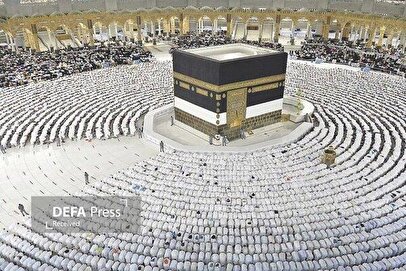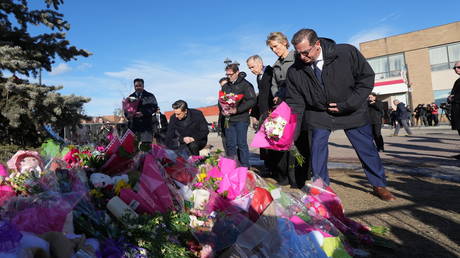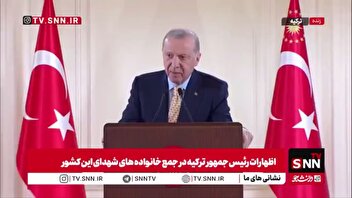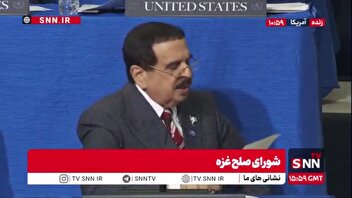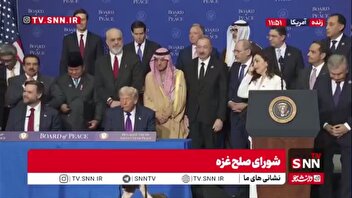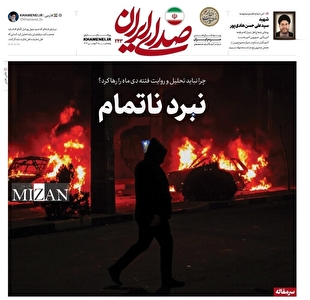Muslim Brotherhood says Trump's terror designation is 'detached from reality'
Muslim Brotherhood says Trump's terror designation is 'detached from reality'

The Muslim Brotherhood called US President Donald Trump’s executive order to begin the process of designating certain chapters of the group as Foreign Terrorist Organizations “detached from reality”.
In a statement released by the group’s official X account on Wednesday, the Muslim Brotherhood said Trump’s allegation that the group was engaged in terrorist activity was “unsupported by evidence”.
“The directive is politically motivated and lacks any credible legal or security basis,” the statement said, adding, “This Executive Order sets a dangerous precedent.”
“Designating the Muslim Brotherhood as a Foreign Terrorist Organizations…undermines US national security and regional stability, and emboldens those who pushed for this outcome to justify repression, collective punishment, and economic sanctions,” the statement added.
The statement said that Trump was bending to pressure from Israel and the UAE, two regional countries that have long been hostile to the group.
“The facts have not changed. What has changed is the level of foreign pressure on the United States, particularly from the UAE and Israel, to adopt policies that serve external agendas rather than the interests of the American people,” it said.
Trump signed an executive order on Monday to begin the process of designating certain chapters of the Muslim Brotherhood as Foreign Terrorist Organizations or FTOs.
The order said that “certain chapters or other subdivisions” of the group would be considered for designation, making specific mention of chapters in Lebanon, Egypt and Jordan.
Those chapters "engage in or facilitate and support violence and destabilization campaigns that harm their own regions, United States citizens, and United States interests", the order said.
The Muslim Brotherhood said the order lacked “any credible legal or security basis”, noting that the organisation does not operate through “chapters”.
“Independent Muslim Brotherhood organizations in some Muslim countries share elements of a common Islamic ideology, but are separate entities that make their own decisions and act in accordance with the law in their respective countries,” the statement said.
“The movements referenced in the directive have long histories of peaceful social, religious, civic, and political participation and have explicitly committed to peaceful democratic systems, respect for constitutional processes, and non-violent civic engagement,” the statement added.
Who is the Muslim Brotherhood?
The Muslim Brotherhood is most commonly known in the Arab world as a political party founded on Islamic principles and laws, whose support skyrocketed in the wake of the 2011 Arab protests aimed at overthrowing autocratic rulers.
It was established in the late 1920s in Egypt in opposition to British colonial rule.
Later, it was outlawed and attacked by nationalist Arab rulers like Egyptian President Gamal Abdel Nasser and Hafez al-Assad of Syria. However, the Muslim Brotherhood gained popularity in the 1970s and 1980s, as secular, authoritarian governments pushed modernisation and western agendas.
In 2012, after the toppling of Hosni Mubarak, Egypt's ruler for three decades, an internationally monitored election in Egypt saw the victory of the country's first Muslim Brotherhood president, Mohamed Morsi. He was toppled in a 2013 coup led by his minister of defence and now Egyptian president, Abdel Fattah el-Sisi.
Tensions over the group culminated in a rift between regional powers Turkey, Saudi Arabia, Qatar, and the UAE. The UAE and Saudi Arabia led a blockade of Qatar and fought proxy wars with Turkey in countries like Libya.
More recently, the Gulf states have tried to patch up ties, but the Muslim Brotherhood remains a point of contention in the region. Many monarchies view the group as a threat to their dynastic rule.



